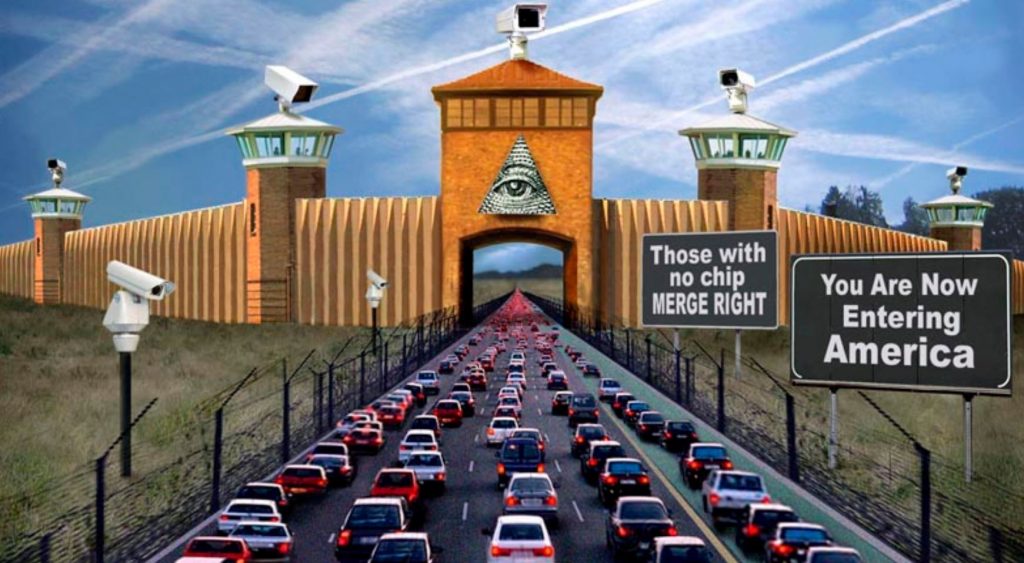The U.S. Customs and Border Protection is preparing to launch a pilot program to scan the faces of drivers and passengers at Anzalduas Port near McAllen, Texas.
On Thursday the U.S. Customs and Border Protection announced plans for a new pilot program that will test out biometric facial recognition technology as part of an effort to identify fugitives or terror suspects. The Austin-American Statesman reported on the announcement:
Thanks to quantum leaps in facial recognition technology, especially over the past year, the future is arriving sooner than most Americans realize. As early as this summer, CBP will set up a pilot program to digitally scan the faces of drivers and passengers — while they are in moving vehicles — at the busy Anzalduas Port of Entry outside of McAllen, the agency announced Thursday.
The Texas-Mexico border is being used as the testing grounds for the technology. The results of the pilot program will be used to help roll out a national program along the entire southern and northern borders. The Statesman notes that the Department of Energy hired researchers at Tennessee’s Oak Ridge National Laboratory to help overcome the difficulties of using facial recognition technology on moving vehicles. The researchers developed a method for combating window tinting and sun glare which can make a vehicle’s windows impenetrable to cameras. The facial recognition technology being developed for the pilot program will be capable of identifying the driver, front passengers, and the passengers riding in the back.
The CBP currently operates facial recognition exit programs at almost a dozen international airports in the United States. Colleen Manaher, the CBP’s executive director of planning, program analysis and evaluation, told the Statesman that travelers have been accepting of the technology and noted that “we can thank the Apples and the Googles for that.”
Although the CBP claims implementing facial recognition technology could eventually eliminate the need for passports, boarding passes and other travel documents, the technology is without a doubt an invasion of privacy. Both the Electronic Frontier Foundation and Georgetown University’s Center on Privacy and Technology have called for further investigation into the potential dangers of a massive facial recognition apparatus. In the U.S., only Texas and Illinois have laws preventing the use of biometric data for commercial purposes.
The new Texas pilot program is only the latest effort by the federal government to implement a wide range of biometric and surveillance programs around the United States.
In August 2017 Activist Post first reported on the plans to launch a national program scan the faces of all airline passengers in the U.S. Customs and Border Protection launched a “Traveler Verification Service” (TVS) that intends to use facial recognition on all airline passengers, including U.S. citizens, boarding flights exiting the United States. That same month it was reported that thirty-one sheriffs along the U.S.-Mexico border voted unanimously to adopt tools that will allow the collection and storing of iris scans.
Additionally, Activist Post just last week reported that the U.S. Immigration and Customs Enforcement (ICE) agency now has access to a nationwide license plate recognition database after finalizing a contract with the industry’s top license plate data collection company. This database allows ICE to search a vehicles whereabouts over the last five years, as well as developing “hot lists” that can track particular vehicles indefinitely.
The U.S. Immigration and Customs Enforcement is currently facing a lawsuit for failing to release records related to the agency’s use of devices to gather biometric data from immigrants. Mijente and the National Immigration Project of National Lawyers Guild are asking a federal court to force ICE and the Department of Homeland Security to release information related to the use of handheld devices used to gather biometric data from immigrants during raids.
These programs are reminiscent of mass surveillance systems established in Russia and China. The truth of the matter is that all three nations are taking different paths towards the same goal: control and monitoring of their population and suppression of critical thought or opposition. The only way to stand against this is to refuse to fund the programs at every turn and sharing the information. It might be too late to stop the establishment of these programs, but the people could potentially form enough of a resistance to establish free communities and neighborhoods where these invasive technologies are rejected.
Derrick Broze is an investigative journalist and liberty activist. He is the Lead Investigative Reporter for ActivistPost.com and the founder of the TheConsciousResistance.com. Follow him on Twitter. Derrick is the author of three books: The Conscious Resistance: Reflections on Anarchy and Spirituality and Finding Freedom in an Age of Confusion, Vol. 1, Finding Freedom in an Age of Confusion, Vol. 2 and Manifesto of the Free Humans.
Derrick is available for interviews. Please contact [email protected]
Support us at Patreon. Follow us on Facebook, Twitter, Steemit, and BitChute. Ready for solutions? Subscribe to our premium newsletter Counter Markets.
This article may be freely reposted in part or in full with author attribution and source link.
Also Read: Papers Please: “Daily Citizenship Checks” on Buses Across Maine Highlight Constitution-Free Zone
Source Article from http://feedproxy.google.com/~r/ActivistPost/~3/adTubJMUmeU/trump-administration-to-test-biometric-program-to-scan-faces-of-drivers-and-passengers-in-vehicles.html
Related posts:
Views: 0
 RSS Feed
RSS Feed

















 February 6th, 2018
February 6th, 2018  Awake Goy
Awake Goy 
 Posted in
Posted in  Tags:
Tags: 
















